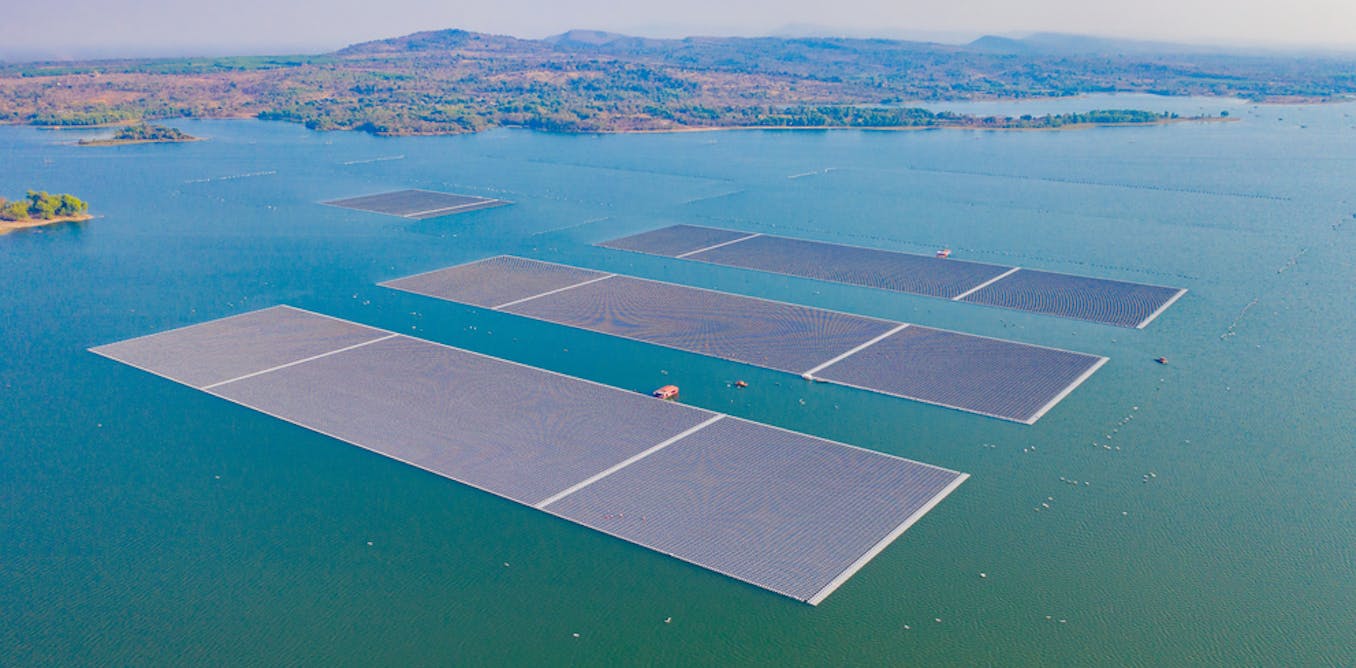‘Limitless’ energy: how floating solar panels near the equator could power future population hotspots::New research shows densely populated countries in Southeast Asia and West Africa could harvest effectively unlimited energy from solar panels floating on calm tropical seas near the equator.



These are promising projects, Solar is worthwhile deploying and very economically viable. Where I have some concerns is that these are relatively expensive projects to do for Solar, the cost of the flotation and extra cabling and corrosion of the water all add to the costs. Its a lot cheaper to deploy it on roofs and we have countless enormous numbers of business/industrial roof space that could be used for this with much cheaper maintenance and installation closer to where the power is used.
I would much rather see us deploy more Solar across existing buildings and above obviously useful spaces as shade like like car parks than in the water where its relatively expensive. Still if they have done the maths and it works out then more power from the sun and less from burning ancient plants is all positive from me, but we can make our investment go further.
Agreed, smaller solares powering smaller things is the way to go. Like carpark shade to power the lights nearby
Yep solar is great but from what I learned while designing my own system, the big challenge there would be transferring the current or storing it without losing a lot. Solar panels typically generate small-ish DC voltages, which do not fare well when being transferred over long cables. They lose a lot of power over distance.
High voltage AC is the way to transfer the juice. Also probably challenging in the ocean, but IDK.